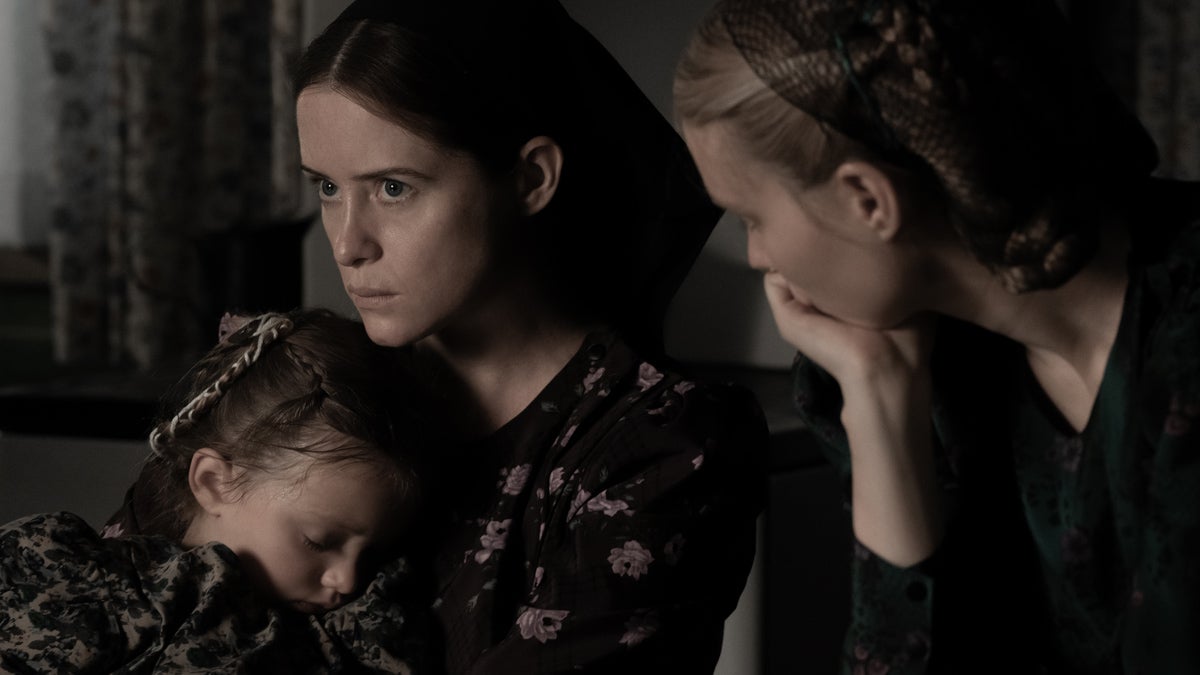
“Women Talking” has won the USC Libraries Scripter Award for adapted screenplay in a ceremony that took place on the USC campus in Los Angeles on Saturday night.
The Scripter Award goes to both the writer of an adapted screenplay and the author of the original material on which the screenplay was based, which meant that the award was given to writer-director Sarah Polley and novelist Miriam Toews, whose 2018 novel formed the basis for Polley’s film.
In the 34-year history of the Scripters, the winner has matched the Oscar winner 14 times, most of those in an eight-year streak between 2010 and 2017.
Other finalists were screenwriter Kazuo Ishiguro for “Living,” based on Leo Tolstoy’s novella “The Death of Ivan Ilyich” (via Akira Kurosawa’s Japanese film “Ikiru,” which wasn’t mentioned in the Scripter citation); screenwriter Rebecca Lenkiewicz and journalists Jodi Kantor and Megan Twohey for “She Said”; and Guillermo del Toro, Patrick McHale and Matthew Robbins for “Guillermo del Toro’s Pinocchio,” based on Carlos Caridi’s 19th century fairy tale. “Pinocchio” was the first animated film ever nominated for a Scripter.
The fifth finalist was an odd case. Originally, Scripter organizers announced that “Top Gun: Maverick” was a finalist and had used characters from a 1983 magazine article by Ehud Yonay that more directly inspired the original 1986 “Top Gun.” Three weeks after the nominations were announced, though, a member of the Scripter selection committee revealed that the film did not appear on the final ballot and had been withdrawn at Paramount’s request.
Reps for the film and for the Scripter Award declined to comment, but the likely reason is that Paramount is currently in a court battle with Yonay’s heirs over “Top Gun: Maverick.” In a motion to dismiss, the studio contended that “Maverick” has no similarities with the original 1983 article, but a judge ruled against that motion in November. The Scripter ceremony went ahead with no official mention of “Top Gun” or its original status as a finalist.
In the television category, which was added in 2015, the winner was “Slow Horses,” with the prize going to novelist Mick Herron and screenwriter Will Smith. (He’s a British screenwriter, and yes, there were lots of jokes about the other Will Smith at another awards show.)
The ceremony took place in the Edward R. Doheny Memorial Library at USC and was a fundraising event for USC Libraries. It was the first in-person Scripter ceremony since the beginning of the pandemic.
FILM FINALISTS
Guillermo del Toro, Patrick McHale, and Matthew Robbins for “Guillermo del Toro’s Pinocchio” based on the fairy tale “The Adventures of Pinocchio” by Carlo Collodi
Kazuo Ishiguro for “Living” based on the novella “The Death of Ivan Ilyich” by Leo Tolstoy
Rebecca Lenkiewicz for “She Said” based on the nonfiction book “She Said: Breaking the Sexual Harassment Story That Helped Ignite a Movement” by Jodi Kantor and Megan Twohey
Screenwriter Sarah Polley and novelist Miriam Toews for “Women Talking” *WINNER
WITHDRAWN NOMINATION: Peter Craig, Ehren Kruger, Justin Marks, Christopher McQuarrie, and Eric Warren for “Top Gun: Maverick,” based on characters from the 1983 “California” magazine article “Top Guns” by Ehud Yonay
TELEVISION FINALISTS
Peter Morgan, for the episode “Couple 31,” from “The Crown,” based on his stage play “The Audience”
Taffy Brodesser-Akner for the episode “The Liver,” from “Fleishman Is in Trouble,” based on her book of the same name
Will Smith for the episode “Failure’s Contagious,” from “Slow Horses,” based on the novel by Mick Herron *WINNER
J. T. Rogers for the episode “Yoshino” from “Tokyo Vice,” based on the memoir “Tokyo Vice: An American Reporter on the Police Beat in Japan” by Jake Adelstein
Dustin Lance Black for the episode “When God Was Love,” from “Under the Banner of Heaven” based on the nonfiction work by Jon Krakauer
















